
Freedom of Expression, Media and Journalism under the European Human Rights System
Freedom of Expression, Media and Journalism under the European Human Rights System
Keywords: freedom of expression;
More...
Keywords: freedom of expression;
More...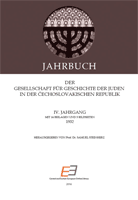

Keywords: Ukraine’s Security;
Chairman’s Summing-up (by François Heisbourg) | Ukraine’s Strategic Security: On a Crossroads between Democracy and Neutrality (by Alexander Bogomolov) | Ukraine’s Security: The Interplay of Internal and External Factors (by James Sherr) | Ukraine’s Strategic Security: Crossroads passed, bumpy road ahead or an optimistic view? .(by Arkady Moshes) | Ukrainian Foreign and Security Policy after the Collapse of the Orange Coalition (by F. Stephen Larrabee)
More...
Keywords: history; dispute; feminism; defining;
To se pitanje feministkinjama često upućuje, kao da bi se jednom definicijom, jednim jednostavnim zahvatom, moglo obuhvatiti obilje praksi i široko teorijsko polje koje se otkriva u ovom pojmu. Feminizam – kao i mnogi drugi -IZMI – jeste pokret, ideologija, lično uverenje, mreža teorijskih pozicija, polazna tačka u razmatranju fenomena koji se više ni ne moraju ticati žena, pojmovni okvir, skup različitih (ponekad izrazito kreativnih, ponekad teskobno arhivarskih) aktivnosti čiji je cilj pospešenje položaja u kojem se žene danas nalaze, a neretko i pokušaj da se istorija pročita drugačije, da se iz njenog tkanja „izvuku“ neka nevidljiva mesta koja bi mogla da posluže kao putokaz za buduće prakse. Katkad se tokom tog „prečitavanja“ povesti potkrade i neka greška, slučajna ili namerna, katkad naučnost ustupi mesto mašti. Sve to ostaje uključeno u feminizme, što njih ne čini ništa manje „verodostojnim“.
More...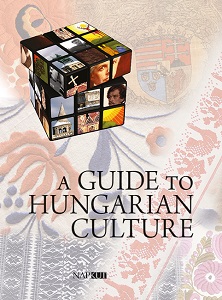
Keywords: Hungarian history
The immense, flat plain that lies between the Ural and Carpathian mountains, north of the Black Sea and the Sea of Azov, allowed dozens of nomadic peoples to wander, separating and mixing, approximately fifteen hundred years ago. A people appeared among them in the reports of Arab and Persian merchants in the 9th century A.D, a people who called themselves Magyar. They inhabited the region where the Kama and Volga Rivers meet (today it is the Bashkir Autonomous Federal Republic of the Russian Federation). Th is was the moment that the Hungarian people entered the writt en history of the world.
More...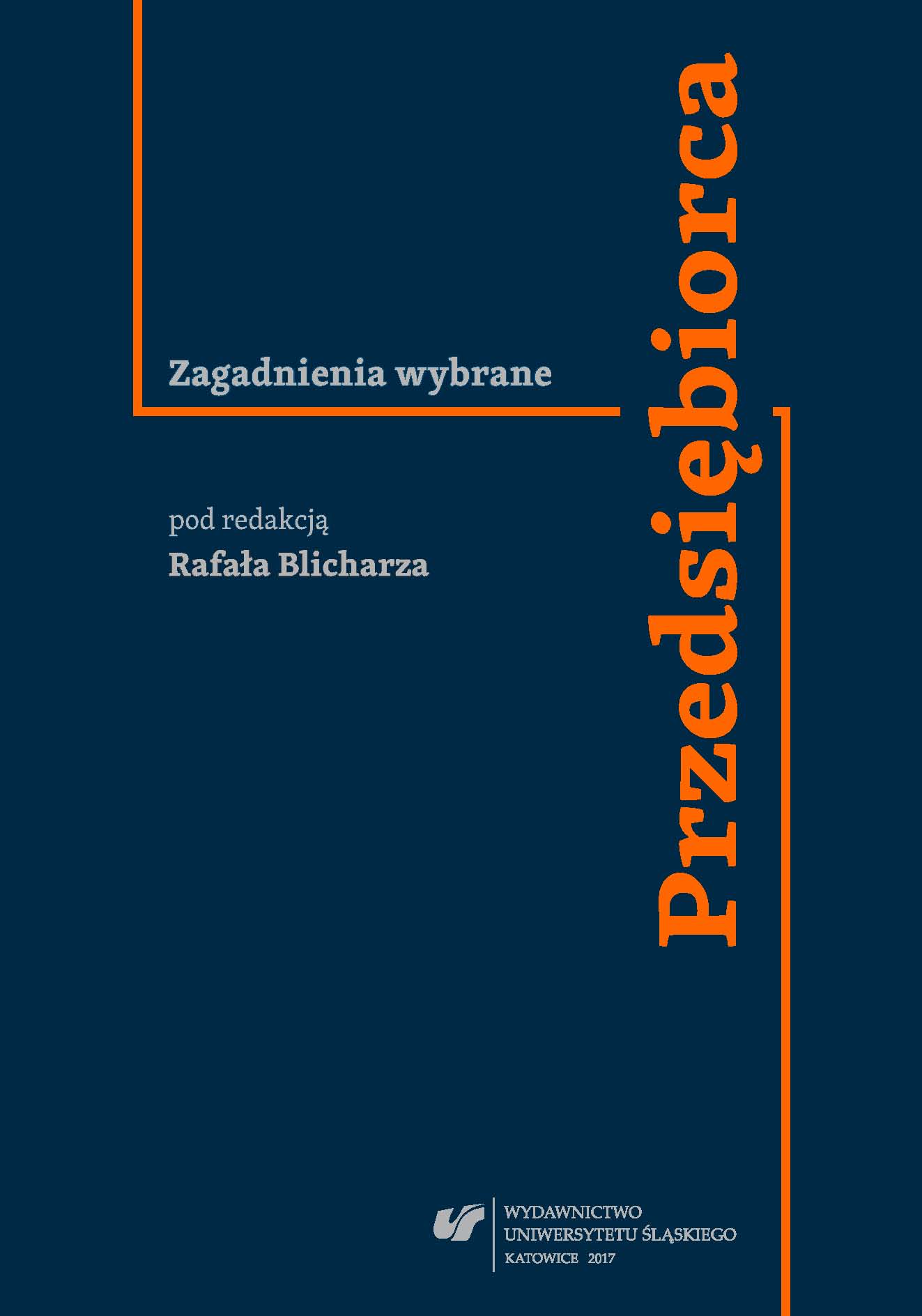
This chapter presents the duties of the entrepreneur regarding employees and other persons performing work, focusing on recent labour law changes enforced in 2016 and 2017.The paper outlines the legal basis for employment on both labour law and civil law contracts,delimiting the freedom of the entrepreneur and showing the principles governing the social security coverage. It focuses mainly on the labour law employment relationship, presenting duties connected with the establishment of an employment contract, types of employment contracts, introducing internal regulations and preparing individual employee documentation. It also describes the employer’s obligations connected with employment relationship, especially the obligation to pay remuneration.The study analyzes briefly the termination of employment contracts, taking into account thetermination by mutual consent and the termination with or without notice.
More...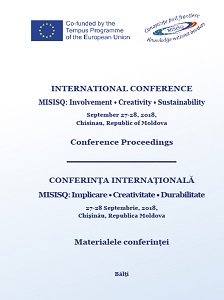
Keywords: repozitorii instituţionale; indexare; biblioteci universitare; digitizare;
În acest capitol este subliniată importanţa şi necesitatea iniţierii Repozitoriilor Instituţionale.
More...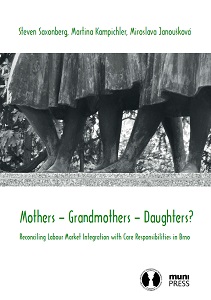
Keywords: Local Welfare system; Childcare; Pre-school children; Communist rule;
In this chapter, we take a look at the development of parental leave and childcare policies in Czechoslovakia under communist rule, present the changes after 1989 in these areas as well as the current situation, with a special focus on Brno. Additionally to the policy context, the chapter presents information on the coverage of childcare services in Brno and discusses their quality, affordability, accessibility and financing. For this purpose, we draw on available statistics and literature, on key policy documents as well as on our interviews with Brno city administration representatives, relevant to the topic. Hence, this chapter aims to provide an overview of the current situation of childcare policies and services in Brno, together with their evaluation from the point of view of their potential support for women’s participation on the labour market as well as to introduce the context for the decision making of women with pre-school children living in Brno, which will be analysed in Chapter 5.
More...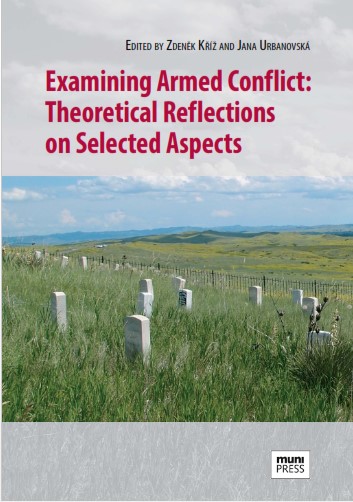
Keywords: International relations; Causes of war; conflict studies; psychological theories; Marxism; neo-Marxism; Liberal theories;
International relations (IR) as an autonomous academic discipline was eventually formed in the interwar era and it set quite an explicit goal– to contribute to the studies of wars and especially to prevent their re-occurrence. Hence the new discipline responded to the existing demandin a society recovering from the horrors of World War I. It had a purely practical task that could hardly be questioned in the social atmosphere of that time. Then as well as nowadays, to fulfill this ambition, it is necessary to pay attention to the study of the causes of wars. Therefore, theories dealing with the studies of the causes of wars are an essential part of the tradition of international relations.
More...
Keywords: National Security Architecture; Interception of telecommunication; Slovak Republic; Slovakia; Constitution Law; Code of Criminal Procedure;
It can be said that Slovak Republic legislators have been inspired in many situations by the Czech legal setting. To define the constitutional limits of interception, we have to look at the Slovak Constitution (Act No. 460/1992 Zb. Constitution of the Slovak Republic). It states in Article 2, Paragraph 3 that state bodies can act only on the basis of the Constitution, within its limits, and to the extent and in a manner defined by law. Pursuant to Article 19, everybody has the right to protection against unjustified interference with his or her private and family life and against the unjustified collection, publication, or other misuse of personal data.
More...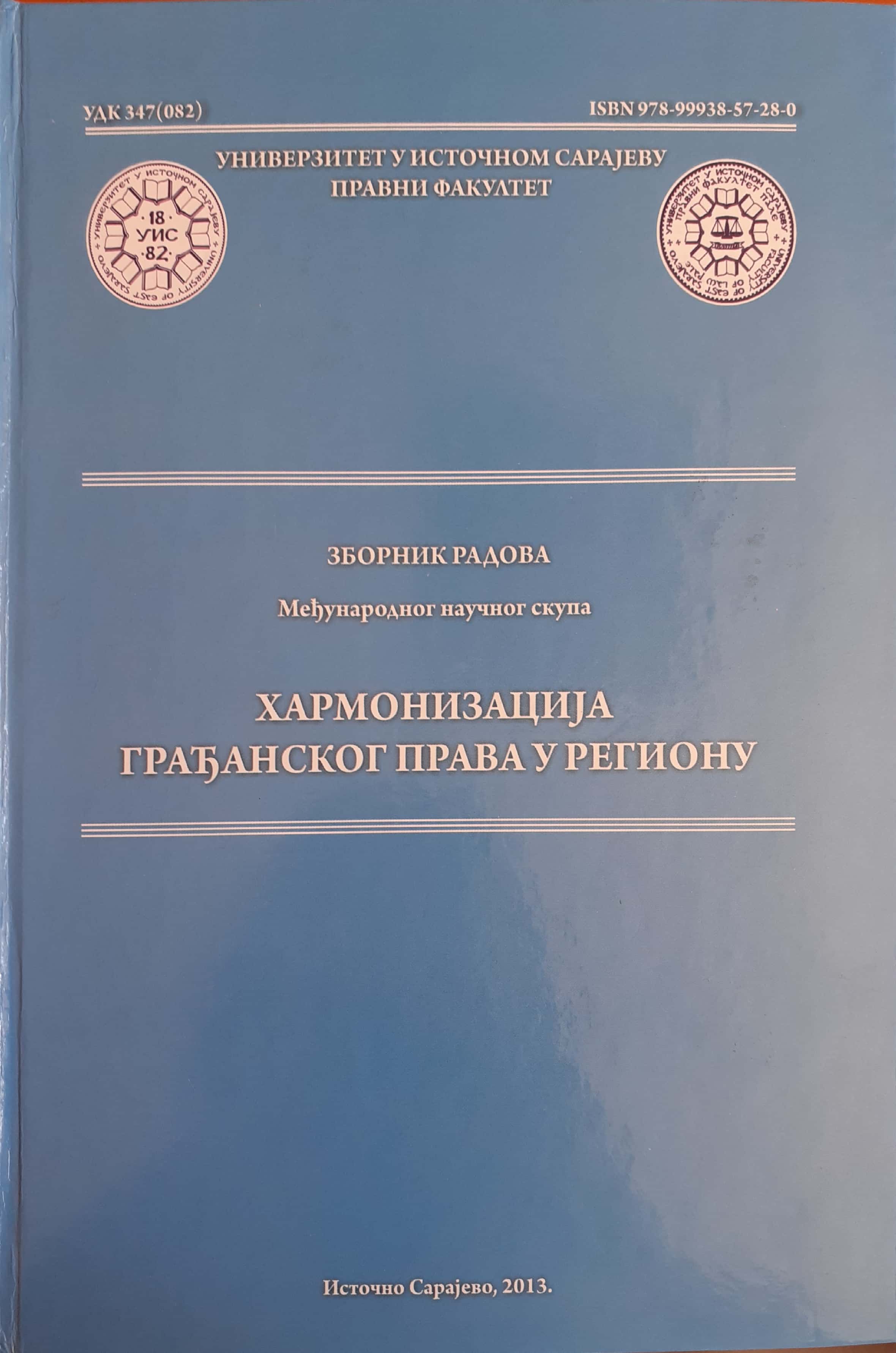
Keywords: Morale;Ethics;Civil law;Private autonomy;Good faith;
The author discusses two basic principles on which Civil Law rests – principle of private autonomy (autonomy of the will) and principle of good faith. Private autonomy, originating from the theory of autonomy of the will, stands for individualistic, hence egoistic principles in law as confirmation of subjective civil rights and as a token of position and role an individual plays in constituting, changing and cessation of subjective civil rights. The principle of good faith stands in sharp contrast to the principle of autonomy of the will in the sense of the struggle of the opposites, thus striking a balance between egoistic on one and ethic, social i.e. common or collective on the other side. Law without ethics is injust, immoral law, „law“ which can easily slip into the realm of antilaw, violence or even crime, the fact that has, sadly, been confirmed in the history of our civilization too many times. Morale, ethics without legal sanction, hence, without law is but a forsaken righteous man warning and crying, but unable to avert deceit, violence or even crime. Ethical system devoid of law resembles a senior advisor whose advice is disregarded even when properly understood. In the world of conflicting interests legal and moral order rely on fellowship, interlacing, coegzistance. Those who fail to understand ethics cannot understand the essence of law; those who fail to understand the law will certainly not understand the point, the gist, the life of ethics. Hence law and ethics must never be two separate entities.
More...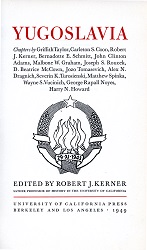
The wartime damages sustained by the Yugoslav economy influence and will, for a number of years, continue to influence the production and export capacity of the country and its import needs. Most of the following data come from the reports of the United Nations Relief and Rehabilitation Administration Mission in Yugoslavia, which obtained them from official Yugoslav sources and, when possible, checked them. Since most of the data were compiled by local liberation committees which were inexperienced in administrative work, and since statistical services in Yugoslavia have always been poor, final computations of damages will necessitate much revision. Nevertheless, the data are sufficient to convey the order of magnitude of the destruction and damage sustained during the war.
More...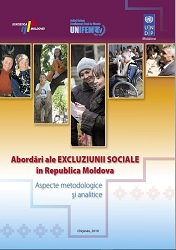
Keywords: quality of life, social justice; social exclsion; social cohesion;
Creating the conditions for improving the quality of life of the population by developing an economically competitive society, based on knowledge, capable of sustainable economic growth, jobs and high social cohesion is the fundamental objective of the National Development Strategy for 2008 -2011 (SND) of the Republic of Moldova. However, the problems of poverty continue to persist both nationally and globally, prompting experts in the field to investigate the causes and mechanisms that favor this condition in order to reduce the risks of social exclusion. // PUBLISHED BY UNDP (MOLDOVA), UNIFEM UNITED NATIONS DEVELOPMENT FUND FOR WOMEN, NATIONAL BUREAU OF STATISTICS (MOLDOVA)
More...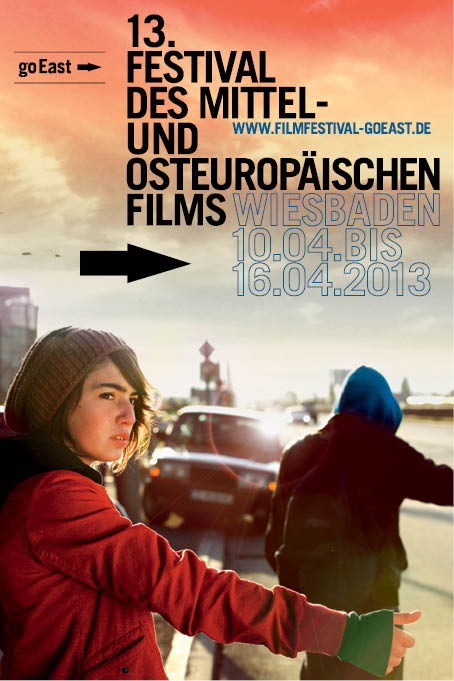
Keywords: festival;catalogue;film;
More...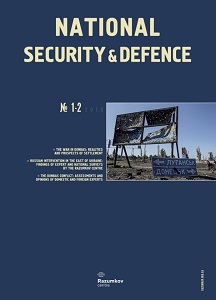
Keywords: Eastern Ukraine; Russian aggression against Ukraine;
The War in Donbas: Realities and Prospects of Settlement // Geopolitical Aspects of Conflict in Donbas // Occupation of Donbas: Current Situation and Trends // Donbas: Scenarios of Developments and Prospects of a Peacekeeping Mission // Summary and Proposals: Peacekeeping Mission in Donbas: Western Experts’ Opinions // The War in Donbas: Probable Scenarios and the Line of Actions // The Conflict in the East of Ukraine: Expert Opinions and Positions // The “Donbas Component” of the Russia-Ukraine Conflict: Citizens’ Opinions and Assessments // The Strategies and Goals of Russian Intervention in Donbas // Some Aspects of Decisions in the Domain of State Law for the Occupied Areas of Donbas
More...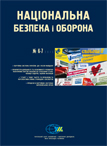
PARTY SYSTEM OF UKRAINE BEFORE AND AFTER MAIDAN: CHANGES, TRENDS, PUBLIC DEMAND // CHAPTER 1. PARTY SYSTEM OF UKRAINE IN 2010-2015: STAGES AND SPECIAL ASPECTS OF EVOLUTION // CHAPTER 2. PARTY SYSTEM AFTER MAIDAN: IMPLICATIONS AND FACTORS // CHAPTER 3. DEVELOPMENT PROSPECTS OF POLITICAL PARTIES: CONTENT OF PUBLIC DEMAND // CHAPTER 4. RECOMMENDATIONS // Main theses of the Ukrainian political parties’ election programmes that have a parliamentary faction // Main theses of the Ukrainian political parties’ election programmes that have gained over 1% of people’s votes // POLITICAL PARTIES IN UKRAINE: CURRENT STATE, DEVELOPMENT AND ENVIRONMENT // POLITICAL PARTIES IN UKRAINE: EXPERT OPINIONS // CURRENT STATE AND PROSPECTS OF DEVELOPMENT OF PARTYSYSTEM IN UKRAINE: EXPERT ASSESSMENTS // POLITICAL PARTIES AND PARTY SYSTEM OF UKRAINE AT PRESENT: PUBLIC OPINION // PARTY SYSTEM OF UKRAINE AT PRESENT: CHALLENGES, PROBLEMS, PUBLIC EXPECTATIONS // Session 1. Development of Ukraine’s party system against the background of modern European trends // Session 2. Current state and development trends of political parties in Ukraine // IN SEARCH OF THE “CORE ELECTORATE”: HOW SHOULD PARTIES REACT TO AN INDIVIDUALISTIC SOCIETY? // PARTY SYSTEMS OF EU MEMBER STATES
More...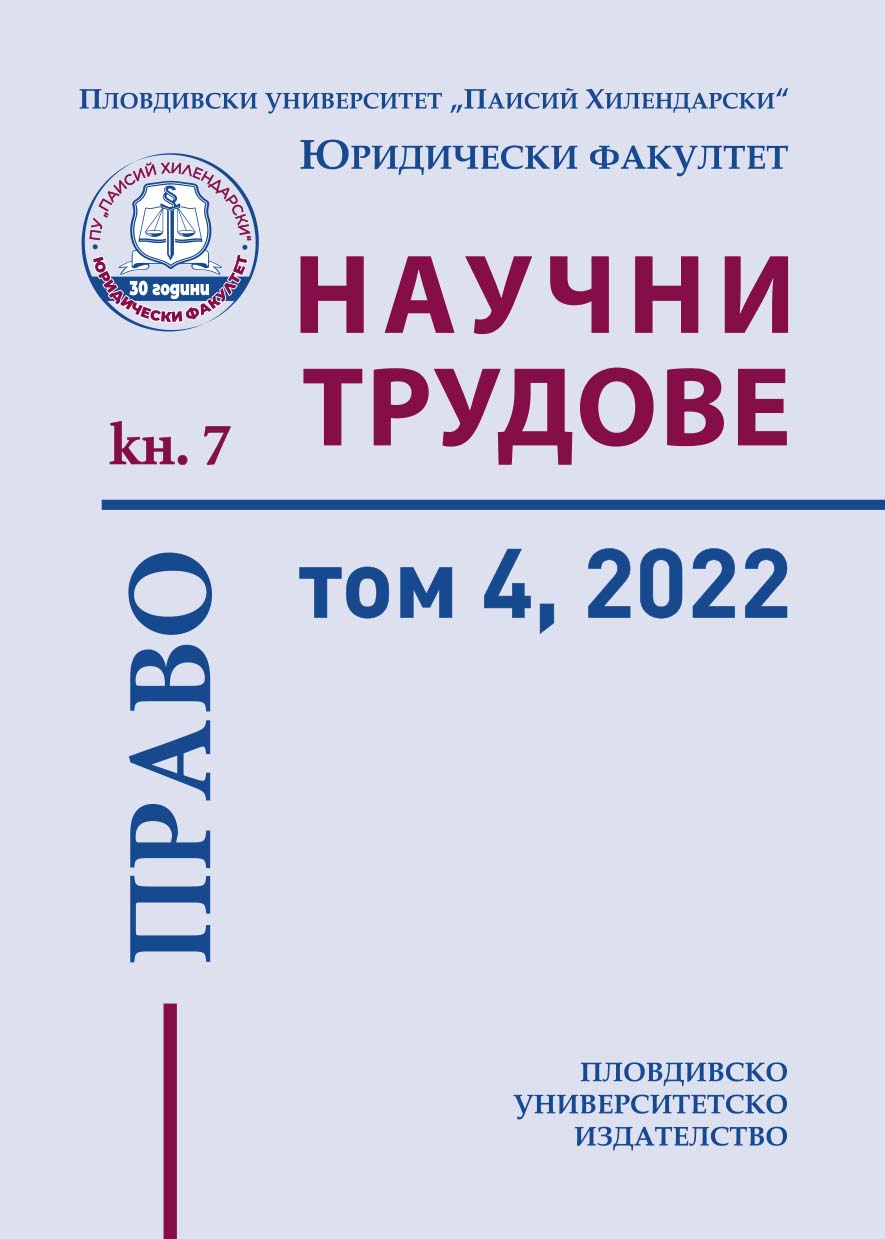
Keywords: Bulgarian Orthodox Church; statute; identity; conciliarity
The study presents the characteristics and legal nature of the Statute of the Bulgarian Orthodox Church (BOC) as a legal entity (ex lege). The Statute is an expression of the identity of the BOC as an autocephalous church and on a secondary level it is an internal organizational act and a mandatory legal individualizing feature of the BOC as a subject of law. The thesis is argued that the provisions of the Statute cannot be changed based on the autonomy of the will as clauses of a contract due to their predetermination by the principles of conciliarity and hierarchy of the Orthodox Church. The Statute of the BOC is cited as an example of one of the most sustainable regulatory systems, which ensures the institutional continuity of the BOC though the centuries. The Statute of the BOC, whose sources are canons with centuries of existence, bears only the formal linguistic name "Statute", and in essence is a "mini codification of ecclesiastical law in Bulgaria". In support of the theoretical theses, an interpretive practice of the Supreme Court of Cassation on the normative force of the Statute of the BOC is presented.
More...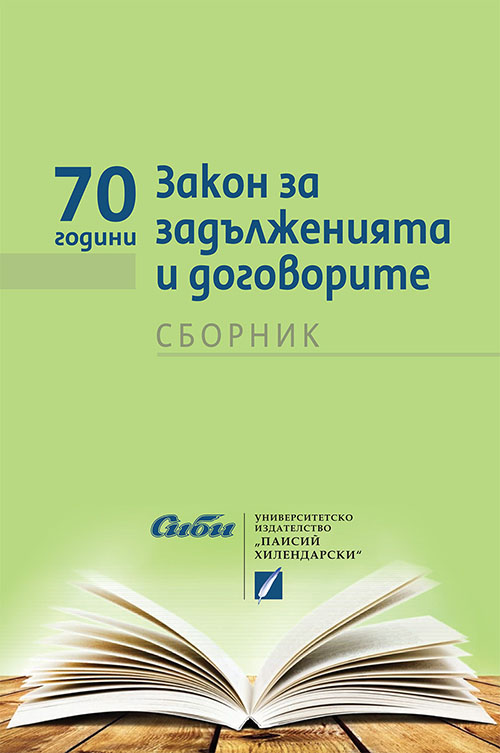
Keywords: Abuse of rights; Civil Law; Commercial Law; Comparative Law; Roman Law; Corpus Juris Civilis; Digests
The subject matter of this research is the concept and the regulation of the abuse of rights established in the Law of Obligations and Contracts (Art. 8, Para 2 LOC) and in the Commercial Law (Art. 289 CL). They are comparatively analyzed in respect of the leading national legal systems in Germany, Austria, Switzerland, France and Italy. The study historically traces whether the general rule of abuse of rights is found out in Ancient Roman Law. According to the widespread doctrine view the concept of abuse of rights originates from the international public law3, which condemns the abuse of discretionary power of public authority. Nowadays the abuse of rights is also found in Private Law with its specific features. The doctrine debates whether the origin of the concept dates back to Ancient Roman Law. Some texts of Corpus Juris Civilis describe and prohibit certain human activities as unlawful exercising of a given right as the D. 39.3.1.12 and D. 39.3.2.9. are most often cited. By establishing these rules the ancient Romanists were guided by the rule: no malice – no actio. Though still in rudimental stage, these rules demonstrate the rise of an idea, which became a clear concept hundreds of years later.
More...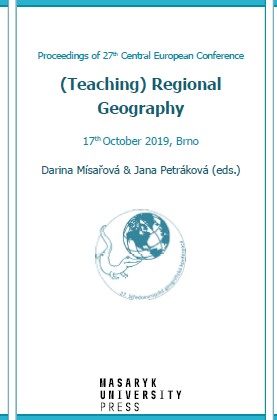
Keywords: Nitra region; livestock production; employment in agriculture; business structure;
The agriculture in Slovakia has undergone structural changes since its accession to the European Union (EU) in 2004, that have been linked to the adoption of the Common Agricultural Policy of the EU Member States. The article focuses on the Nitra region as a typical agricultural region of Slovakia and its development from the agricultural point of view from 2004. Compared to other Slovak regions the Nitra region has good soil climatic ratios, for the development of agriculture. The Nitra region has the largest share of agricultural land which is characterized by a high-level share of arable land from total agricultural land. The region has the highest values in gross agricultural production from the 2004-2016 reporting period. It has good results in plant and livestock production. The region has the highest employment in agriculture. Despite the decline in agricultural land, as well as a decline in total employment in agriculture, the region has the highest employment in agriculture in Slovakia. It is characterized by a well-developed business structure for intensive agricultural production.
More...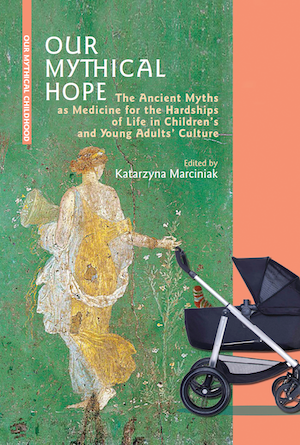
Keywords: Hercules; psychology; pedagogy; education; autism; disruptive behaviours; conduct problems
The chapter discusses Hercules’ myth against the backdrop of selected psychological and pedagogical theories. The hero is compared with other characters, and the pros and cons of their use as models in psycho-educational situations are discussed. The author reflects on possible applications of Hercules’ Twelve Labours cycle in clinical and educational contexts, and particularly in cases such as disruptive behaviours and conduct problems.
More...